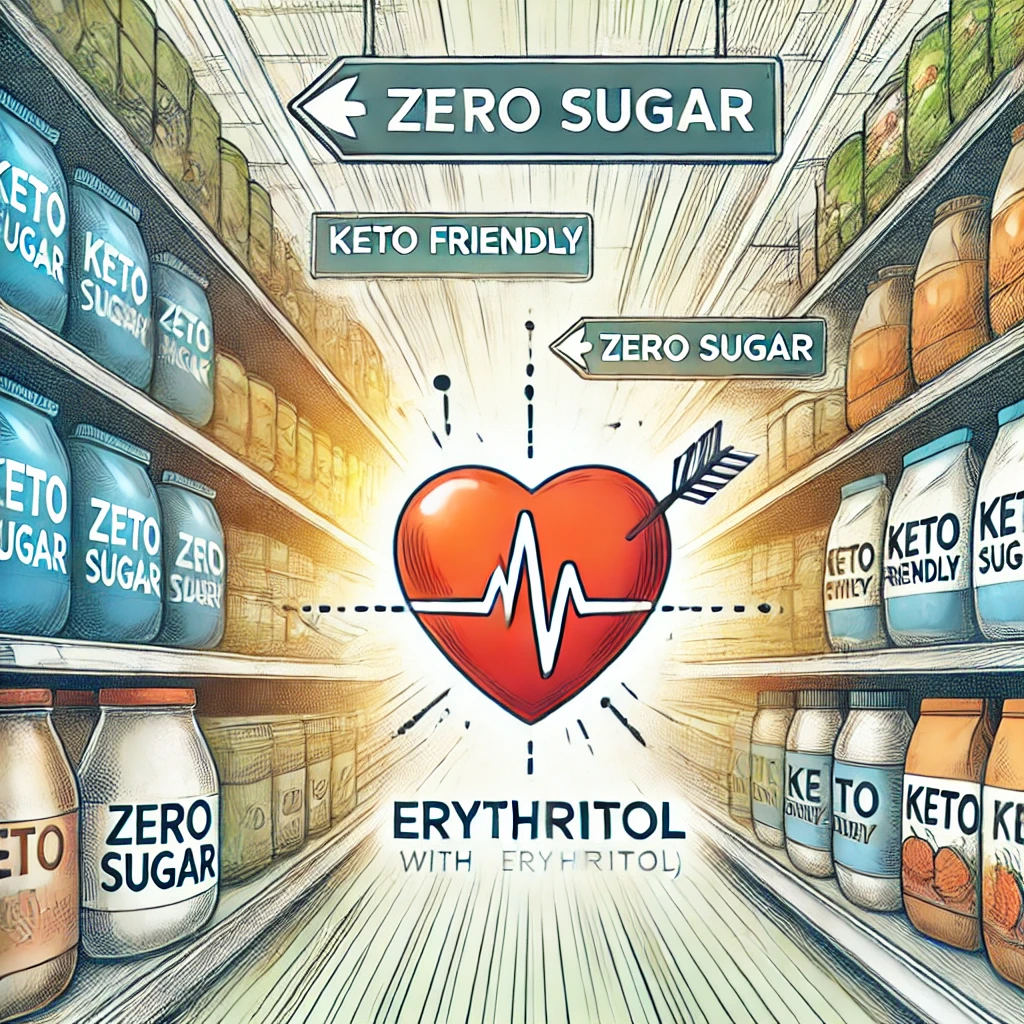Artificial sweeteners have gained popularity as alternatives to sugar, offering a way to reduce calorie intake while maintaining sweetness. They are commonly used in foods and beverages like diet sodas, sugar-free snacks, and keto-friendly products. However, recent research suggests that some artificial sweeteners may carry health risks, particularly concerning cardiovascular health.

Types of Artificial Sweeteners and Their Uses
Common artificial sweeteners include:
• Aspartame (found in Diet Coke and sugar-free gum)
• Sucralose (marketed as Splenda)
• Saccharin (Sweet’N Low)
• Stevia (a natural, plant-based sweetener)
• Erythritol (used in many low-carb and sugar-free products)
These sweeteners are often promoted for weight management, blood sugar control, and oral health. For example, sugar alcohols like xylitol can reduce the risk of cavities, making them popular in chewing gums and mouthwash.
New Research: Erythritol’s Impact on Cardiovascular Health
A recent Cleveland Clinic study revealed that erythritol, a sugar alcohol, may pose a significant health risk. Researchers found that participants consuming erythritol had elevated risks of blood clot formation, potentially leading to heart attacks and strokes. The study demonstrated that erythritol consumption increased platelet activity, making blood more prone to clotting than when glucose was consumed (Cleveland Clinic).
Erythritol is commonly marketed as a “natural” sweetener because small amounts occur in fruits and vegetables, and the human body produces it naturally. However, the study found that processed erythritol levels in food far exceed those naturally found in the body. This raises questions about whether it should remain classified as “Generally Recognized as Safe” (GRAS) by the FDA (Smithsonian Magazine).

Benefits of Artificial Sweeteners: A Balanced Perspective
While erythritol and other artificial sweeteners present risks, they also offer key benefits, including:
1. Weight Management: Artificial sweeteners help reduce calorie intake, aiding weight loss efforts.
2. Blood Sugar Control: These sweeteners do not spike blood glucose levels, making them suitable for individuals with diabetes.
3. Oral Health: Some sugar alcohols, such as xylitol, contribute to better oral hygiene by reducing the risk of cavities.
Despite these benefits, experts caution that people with cardiovascular risks—such as those with obesity, diabetes, or metabolic syndrome—should be mindful of their intake of products containing artificial sweeteners.
Practical Tips for Consumers
• Read Labels: Look for ingredients like erythritol in sugar-free products and track your intake.
• Consult Healthcare Providers: Speak with a dietitian or doctor about whether artificial sweeteners are appropriate for you, particularly if you have cardiovascular concerns.
• Moderate Consumption: Even though artificial sweeteners are widely used, moderation is key to minimizing potential risks.
Conclusion
Artificial sweeteners offer valuable benefits, but research like the Cleveland Clinic study suggests that some may not be as safe as previously thought. As more studies emerge, consumers and regulators may need to reevaluate the use of certain sugar substitutes. For those at risk of cardiovascular disease, it may be safer to limit erythritol intake and explore other dietary options.
To learn more, visit the Cleveland Clinic’s official report here or explore the Smithsonian Magazine’s coverage here
. Balancing the benefits and risks of artificial sweeteners will help consumers make better-informed choices for long-term health.
Discover more from Articles Of AI
Subscribe to get the latest posts sent to your email.

